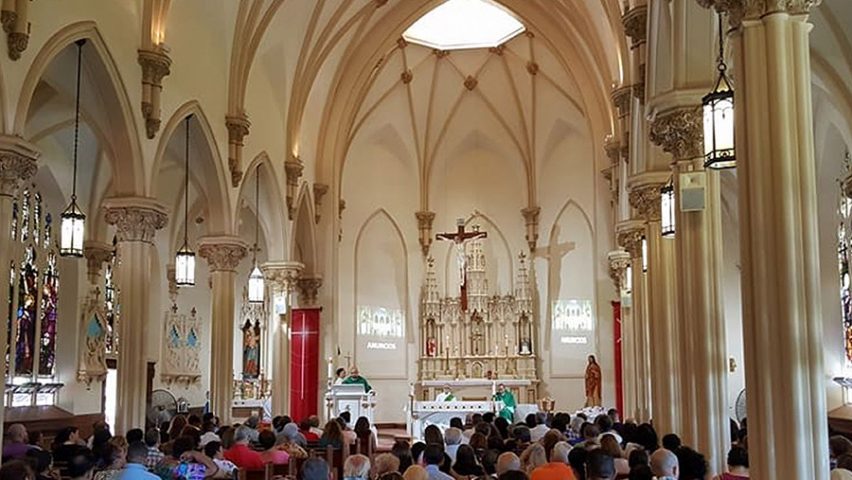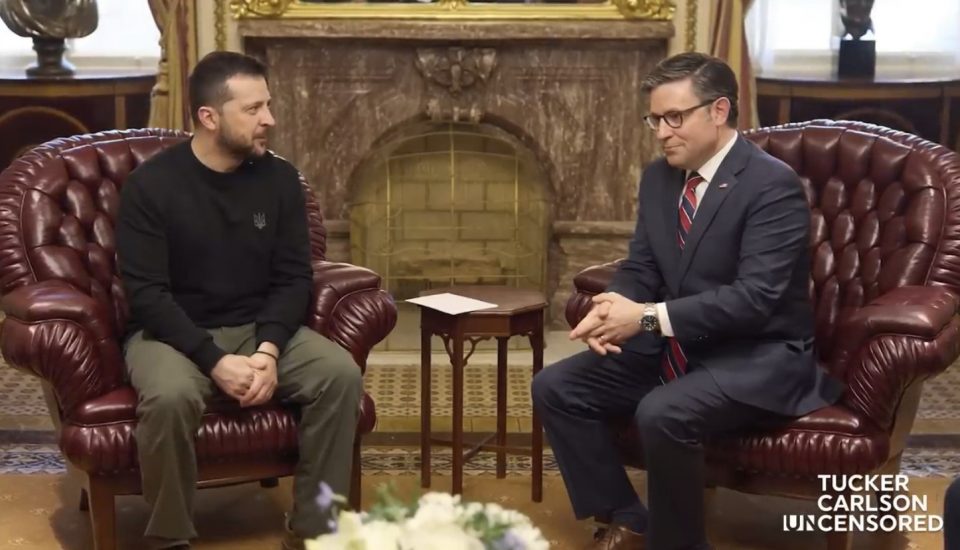The parish where I was baptized, another parish where I made my First Communion, a third parish where I was confirmed and married: all gone, or soon to be gone, or merged. So are three more parishes where our seven children were baptized, made their First Communions and were confirmed.
My sympathies are largely with the archdiocese. There are 545,000 registered Catholics here, but only 122,000 attend Mass on Sunday. The missing 423,000 include members of my extended family and almost everyone with whom I grew up. Their absence saddens me more than do the closed buildings.
But I have strong feelings about the parish closings too. To borrow the taxonomy of the brilliant and blunt Anthony Esolen, I am mostly soldier with a little avenger mixed in.
When Persecution Comes
In “What Will You Do When the Persecution Comes?” Esolen laid out four Catholic reactions to external pressure against — and internal strife within — the Church: the Persecutor, the Quisling, the Avenger and the Soldier.
We certainly have plenty of the first two types in the Northeast. It’s no coincidence that Esolen’s two examples for the Persecutor are from Connecticut and New York.
Parishes that were hotbeds of dissent helped bring their own closings on themselves. I can’t help wondering how things would have worked out if they had chosen a different path.
I strive to be the one good type Esolen mentions, the Soldier. But I confess that there is a little of the Avenger in me when I read of some of these parish closings. Particularly when I read Hartford Courant columnist Susan Campbell’s tearjerker about the closing of one liberal parish.
It is a wonderful thing that this parish fostered upward mobility for the local Hispanic community. But you know what else a Catholic parish is supposed to foster? Catholicism.
We don’t read a lot about that in Campbell’s column. Instead we read that “conversations rarely strayed from politics” and that “It was all politics.” The priests preached liberation theology while the laity “went along that ride with them.”
So, I ask myself: Should I really feel bad that we’re losing the church that helped form the politics of former Hartford Mayor Eddie Perez? This was the pro-abortion, pro-same-sex marriage politician who pulled out of a state Capitol prayer event, at the request of his gay constituents, rather than be seen in public with me. (He later went to prison, though not for that.)
Mostly Soldier
Should I feel bad that we’re losing the church where the laity “went along that ride” with the priest that was teaching liberation theology?
I do, actually. I feel bad.
Look at the church in the photo accompanying Campbell’s article. It’s beautiful. I hate that it’s closing. Because I’m mostly Soldier, I view every parish closing as a defeat. I pray that the archdiocese’s pruning leads to new growth.
But because I also have a little Avenger mixed in, I can’t help thinking that parishes that were hotbeds of dissent, parishes that helped launch only politicians who oppose Church teaching, helped bring their own closings on themselves.
And I can’t help wondering how things would have worked out if those parishes had chosen a different path. Imagine if those parishes in the Archdiocese of Hartford had spent the last 40 years fostering the Catholic orthodoxy of Pope St. John Paul II and the liturgical solemnity of Pope Benedict XVI.
Where would we be right now?
Where Would We Be Right Now?
Every parish might have reverent music and children who play for hours after Mass in the church’s backyard, like St. Mary’s Church in Norwalk.
They might have the renowned Catechesis of the Good Shepherd religious education program for children and the faithful Frassati fellowship for young adults like the Dominican-run St. Mary’s Church in New Haven.
They might have the vocations-fostering homeschooler community whose young men serve at the altar every day like the Cathedral of St. Joseph in Hartford.
The Archdiocese of Hartford today might be a model of the proper implementation of Vatican II, like Cracow, Poland, under the future Pope John Paul II. Or the Denver of the early 2000s under Archbishop Charles Chaput.
Many fewer parishes would be closing today. Many more people would be at Mass. How much better a moral and spiritual condition might Connecticut be in right now?
We’ll never know.
The Avenger in Me Says
The Avenger in me says that the Archdiocese of Hartford has 85 fewer parishes today because some of those parishes thought that liberation theology was more important than the theology of the body, that the spirit of the age was more important than the spirit of the liturgy, and that the culture of death was more deserving of political support than the culture of life.
In the end, it was their own parishes that died.
The Soldier in me remembers that “unless a grain of wheat falls into the earth and dies, it remains alone; but if it dies, it bears much fruit.” May the death of these parishes produce the fruit of a New Springtime of faith for the Archdiocese of Hartford.
____________________________
Attorney Peter Wolfgang is president of Family Institute of Connecticut, a Hartford-based advocacy organization whose mission is to encourage and strengthen the family as the foundation of society. His work has appeared in The Hartford Courant, the Waterbury Republican-American, Crisis Magazine, Columbia Magazine, the National Catholic Register, Catholic Vote and Ethika Politika. He lives in Waterbury, Conn., with his wife and their seven children.







